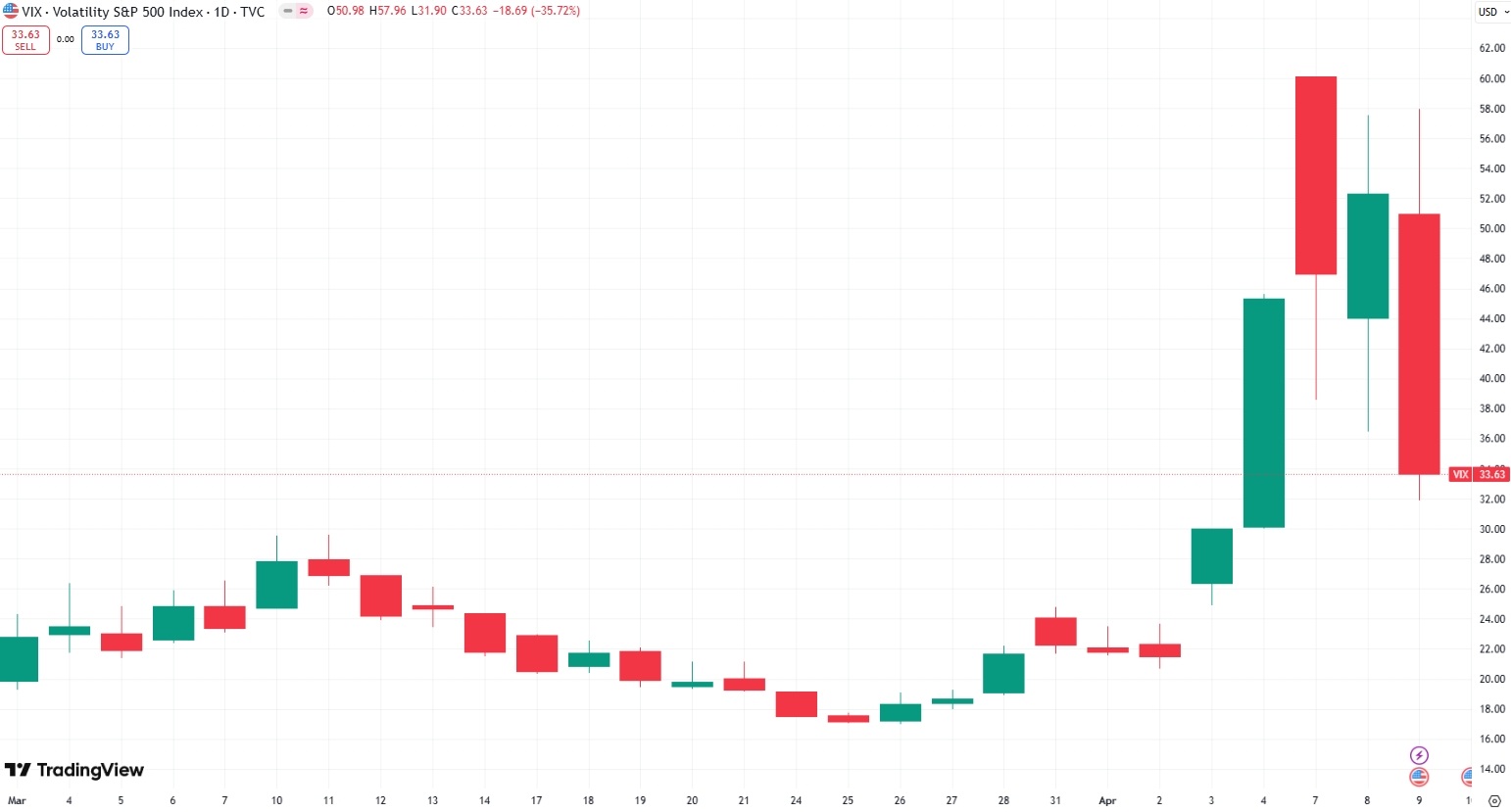Trump Put Emerges, VIX Index Plummets in Largest One-Day Drop! Is It Time to Short Volatility?
TradingKey - Following U.S. President Donald Trump’s announcement of a 90-day suspension of tariffs for certain countries, the CBOE VIX panic index, which had recently doubled, plummeted by 35.75%—its largest single-day decline on record. Trading in VIX-related futures and ETF products was temporarily halted at one point due to the sharp move.
On Wednesday, April 9, less than a day after the implementation of high reciprocal tariffs, Trump reversed course, citing intense pressure from collapsing stock and bond markets as well as growing fears of an economic recession. The move is widely viewed as an example of the so-called "Trump Put "—a belief that the president will ultimately pivot to protect the fundamental health of the U.S. economy.
The VIX index initially surged nearly 10% in early trading but nosedived after Trump’s tariff suspension announcement in the afternoon, closing down 35.75% at 33.62.

[COBE VIX Index Chart, Source: TradingView ]
The VIX measures market expectations of near-term volatility in the S&P 500 and is often used in portfolios as a hedge against sharp downturns. At the beginning of April, the index hovered slightly above 20, but heightened uncertainty surrounding Trump’s tariff policy drove it to a six-month high of 60.13.
While the abrupt suspension has calmed immediate fears, analysts and economists caution that the underlying tariff tensions remain unresolved—and that betting against volatility still poses risks.
Former U.S. Treasury Secretary Larry Summers criticized the administration’s approach, stating that “Trump's reckless improvisation cannot be considered a strategy,” and warned that the U.S. is far from being out of trouble.
The founder of SpotGamma said the temporary suspension is a clear short-term positive for markets, but emphasized that it fails to address the core structural issues related to tariffs. UBS added that their clients remain deeply skeptical.
An analyst at Northlight Asset Management noted that while markets are laser-focused on the potential economic damage caused by tariffs, sentiment would not be so fragile if the crisis appeared fully reversible. However, news flow remains highly volatile, keeping investors on edge.






